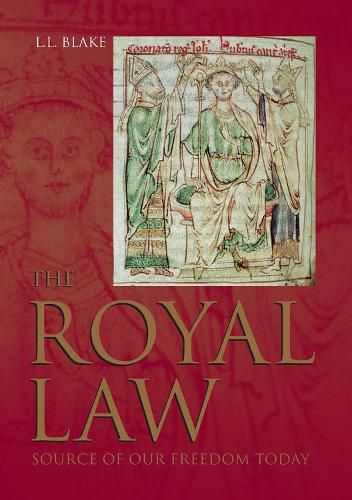Readings Newsletter
Become a Readings Member to make your shopping experience even easier.
Sign in or sign up for free!
You’re not far away from qualifying for FREE standard shipping within Australia
You’ve qualified for FREE standard shipping within Australia
The cart is loading…






The title of this book is taken from words addressed to the King or Queen during their coronation service which, the author points out, plays a much more important part in the life of our nation than is generally recognized. It is not just an empty ceremony but the occasion when Divine Law is acknowledged as the source of all our law. The service reminds not only the monarch but all those assembled in Westminster Abbey (with television the audience is worldwide) of a basic tenet of the British constitution, expressed by the 13th century lawyer Bracton, that the King or Queen must be under no man but under God and the law, for the law makes the king . The barons, in forcing King John to sign Magna Carta, were insisting that he observe this principle and his coronation oath. This principle has frequently been compared, down the ages, with the Justinian precept, What pleases the prince has the force of law , which lies behind continental Roman law. The civil freedom we enjoy in Britain today stems from Bracton’s words, which regulate all our public servants, from prime minister to police officer, and which has enabled us to give freedom under law to large parts of the world - whereas in Brussels, what pleases the Commissioners has the force of law. Writing after the Second World War, where Britain had been fighting to preserve the rule of law, Professor R W Chambers emphasised the importance of this principle, enshrined in our constitution and coronation service: Upon that difference - whether or no we place Divine Law in the last resort above the law of the State - depends the whole future of the world . The book also shows that there is government behind government, with a greater purpose and permanence than the changing spectrum of party political strife. This government consists of institutions, mostly of medieval origin, the monarchy, parliament, common law, jury system, church, universities and armed forces. The powers working through these institutions, which meet in the House of Lords, are made available to the government of the day, and may be retracted if and when they are abused - as the prime minister of Australia discovered in 1975. Two appendices are included, one containing parts of the coronation service of Queen Elizabeth II, the other an Anglo-Saxon document entitled Institutes of Polity, Civil and Ecclesiastical.
$9.00 standard shipping within Australia
FREE standard shipping within Australia for orders over $100.00
Express & International shipping calculated at checkout
The title of this book is taken from words addressed to the King or Queen during their coronation service which, the author points out, plays a much more important part in the life of our nation than is generally recognized. It is not just an empty ceremony but the occasion when Divine Law is acknowledged as the source of all our law. The service reminds not only the monarch but all those assembled in Westminster Abbey (with television the audience is worldwide) of a basic tenet of the British constitution, expressed by the 13th century lawyer Bracton, that the King or Queen must be under no man but under God and the law, for the law makes the king . The barons, in forcing King John to sign Magna Carta, were insisting that he observe this principle and his coronation oath. This principle has frequently been compared, down the ages, with the Justinian precept, What pleases the prince has the force of law , which lies behind continental Roman law. The civil freedom we enjoy in Britain today stems from Bracton’s words, which regulate all our public servants, from prime minister to police officer, and which has enabled us to give freedom under law to large parts of the world - whereas in Brussels, what pleases the Commissioners has the force of law. Writing after the Second World War, where Britain had been fighting to preserve the rule of law, Professor R W Chambers emphasised the importance of this principle, enshrined in our constitution and coronation service: Upon that difference - whether or no we place Divine Law in the last resort above the law of the State - depends the whole future of the world . The book also shows that there is government behind government, with a greater purpose and permanence than the changing spectrum of party political strife. This government consists of institutions, mostly of medieval origin, the monarchy, parliament, common law, jury system, church, universities and armed forces. The powers working through these institutions, which meet in the House of Lords, are made available to the government of the day, and may be retracted if and when they are abused - as the prime minister of Australia discovered in 1975. Two appendices are included, one containing parts of the coronation service of Queen Elizabeth II, the other an Anglo-Saxon document entitled Institutes of Polity, Civil and Ecclesiastical.